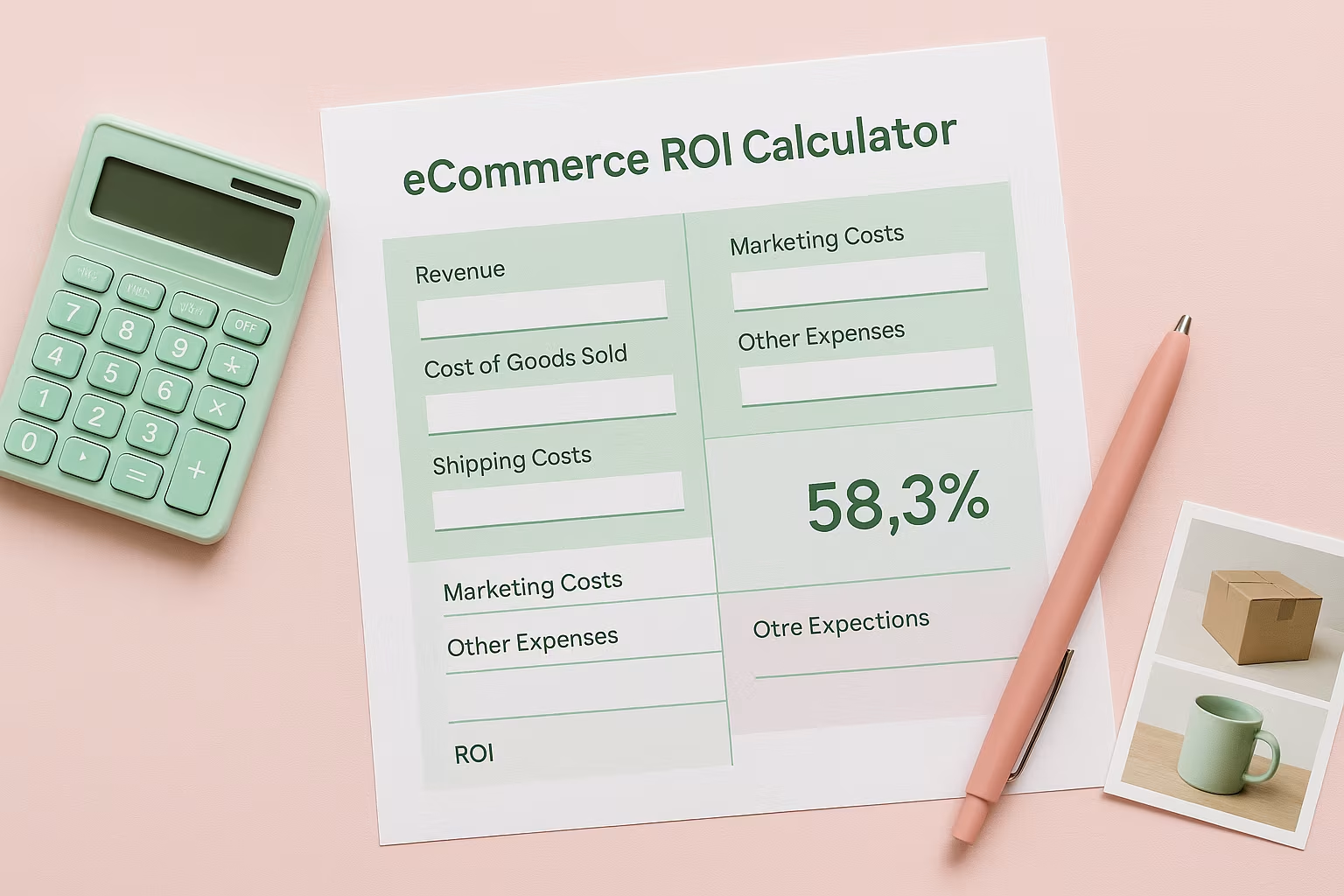What Are the Most Profitable Holistic Wellness Businesses: Business Models to Explore
%20(1).avif)
The holistic wellness industry has rapidly grown into a multi-billion-dollar market as more consumers turn to preventative health and natural solutions.
With rising healthcare costs and a growing skepticism toward conventional medicine, people are increasingly seeking alternatives that balance the mind, body, and spirit. This shift has opened up exciting opportunities for entrepreneurs in the holistic wellness space.
But what are the most profitable holistic wellness businesses? We'll explore the key factors—market demand, profit margins, startup costs, and scalability—that determine success in this thriving industry.
Top 10 Most Profitable Holistic Wellness Business Models
When evaluating holistic wellness business opportunities, profitability depends on multiple factors: market demand, operational costs, and your ability to differentiate from competitors.
1. Private Label Supplements and Wellness Products
The supplement industry remains one of the most profitable segments in holistic wellness, with global sales expected to surpass $200 billion in the coming years.
By creating your supplement brand, you can earn profit margins ranging from 40-80%, depending on your formulations and marketing approach.
Private labeling allows entrepreneurs to build unique brands without the extensive overhead of manufacturing facilities. With a private-label dropshipping supplier, you can:
- Create custom formulations targeting specific wellness concerns
- Develop subscription-based recurring revenue
- Build brand equity that increases your business valuation
- Scale rapidly through e-commerce channels
The key to success is developing truly distinctive products that address specific customer needs.
Rather than creating generic multivitamins, focus on custom branded supplements and formulas for sleep, stress, immunity, or cognitive performance—areas where consumers actively seek solutions.
Pro tip: Bundle supplements with digital content like meal plans or wellness guides to increase your average order value and provide additional value that justifies premium pricing.
2. Wellness Coaching and Holistic Health Consulting
With low startup costs and no inventory, wellness coaching offers exceptional profit margins—often 70-90% after basic business expenses. As a wellness coach, you can work with clients virtually, eliminating geographical limitations and overhead costs.
Successful wellness coaches typically:
- Develop signature frameworks or methodologies
- Create tiered service offerings (from group programs to VIP 1-on-1 coaching)
- Build recurring revenue through membership models
- Leverage technology for scalability
The most profitable coaches specialize in addressing specific demographics or health concerns rather than general wellness. For example, coaching focused on perimenopause wellness, executive burnout recovery, or athletic performance optimization can command premium rates.
3. Digital Wellness Products and Online Courses
Digital wellness products—courses, apps, or membership sites—represent one of the most scalable business models in the holistic health industry.
After initial development costs, digital products have virtually no cost of goods sold, creating exceptional profit margins and passive income potential.
Profitable digital wellness products typically include:
- Video-based courses on specific wellness protocols
- Meditation and mindfulness apps with subscription models
- Membership communities focused on holistic health
- Wellness journals and tracking tools
The most successful digital wellness creators develop comprehensive ecosystems of complementary products rather than standalone offerings.
This allows for strategic upselling and creates multiple revenue streams from the same customer base.
4. Alternative Therapy Practices
Alternative therapy businesses like acupuncture, massage therapy, energy healing, and naturopathy often generate profit margins between 30-60% once established.
While these require specialized training and certification, they benefit from high perceived value and minimal ongoing product costs.
To maximize profitability, successful alternative practitioners:
- Create treatment packages that encourage regular visits
- Develop proprietary protocols that differentiate from competitors
- Integrate retail product sales to complement services
- Build referral networks with complementary practitioners
The practitioners seeing the highest profits often combine multiple modalities rather than offering single-approach treatments. This integration appeals to clients seeking comprehensive solutions and justifies premium pricing.
5. Private Label Skincare and Natural Beauty Products

The natural and clean beauty market continues to expand rapidly, with consumers willing to pay premium prices for products free from harsh chemicals.
Private label skincare businesses typically achieve 50-75% profit margins while meeting growing consumer demand for wellness-oriented beauty solutions.
Successful clean beauty brands focus on:
- Transparent ingredient sourcing and documentation
- Targeted formulations for specific skin concerns
- Sustainable packaging that reinforces brand values
- Educational content that explains product benefits
The most profitable natural beauty entrepreneurs develop comprehensive product lines that encourage customers to adopt multi-step routines rather than purchasing single products. This strategy increases customer lifetime value and average order sizes.
6. Holistic Retreats and Wellness Tourism
While requiring more significant initial investment, wellness retreats and tourism businesses can generate substantial profits through premium pricing models.
Consumers are increasingly willing to invest in transformative experiences rather than material goods.
Successful wellness tourism ventures typically:
- Create immersive experiences combining multiple wellness modalities
- Partner with renowned practitioners to increase perceived value
- Develop signature protocols unique to their location or philosophy
- Incorporate digital components that extend the experience before and after
The most profitable retreat businesses develop tiered offerings ranging from accessible group experiences to ultra-premium private programs, maximizing revenue from different customer segments.
7. Functional Testing and Health Analytics
As consumers become more proactive about health management, businesses offering specialized testing and analytics have seen remarkable growth.
These services typically generate 40-60% profit margins while providing valuable data that can lead to additional product sales.
Profitable health analytics businesses focus on:
- Gut microbiome analysis
- Genetic testing for health optimization
- Hormone and metabolic assessment
- Environmental toxin screening
The real profitability comes from creating ongoing monitoring services rather than one-time tests, developing subscription models that track changes over time, and providing actionable recommendations.
8. Plant-Based and Functional Food Businesses
The plant-based and functional food market continues to expand rapidly, with consumers willing to pay significant premiums for products that deliver specific health benefits.
These businesses typically achieve 30-60% profit margins while addressing growing consumer interest in food as medicine.
The most profitable functional food businesses:
- Target specific health concerns with evidence-backed ingredients
- Develop convenient formats that integrate easily into daily routines
- Create subscription models that encourage regular consumption
- Communicate clear, measurable benefits rather than vague wellness claims
Private label coffee with functional ingredients like adaptogens or mushrooms represents one of the easier entry points into this market, allowing entrepreneurs to leverage existing consumption habits while introducing wellness benefits.
9. Mind-Body Fitness Concepts
Specialized fitness concepts that integrate mental and physical wellness, like yoga studios, hybrid meditation-movement classes, or nature-based fitness programs, typically achieve 40-60% profit margins once established.
These businesses benefit from the growing recognition that physical fitness alone is insufficient for complete wellness.
The most successful mind-body fitness entrepreneurs:
- Develop proprietary training methodologies
- Build community through membership models
- Create multi-channel offerings (in-person and digital)
- Integrate complementary product sales
Learn more about making money in the fitness industry by combining innovative programming with strategic business models.
10. Holistic Pet Wellness Products
The humanization of pets has created enormous opportunities in the holistic pet wellness market.
With consumers increasingly applying their wellness values to their pets' care, private label pet products focused on natural ingredients and holistic health typically achieve 45-70% profit margins.
Successful pet wellness businesses focus on:
- Specialized supplements addressing common pet health concerns
- Natural grooming products free from harsh chemicals
- Calming solutions for anxiety and stress
- Functional treats that deliver specific health benefits
The most profitable pet wellness entrepreneurs develop comprehensive product ecosystems rather than single-product offerings, creating multiple purchase opportunities within the same brand relationship.
Maximizing Profitability in Your Holistic Wellness Business

Regardless of which business model you choose, certain strategies consistently increase profitability in the holistic wellness space.
Focus on Recurring Revenue
Subscription-based models dramatically increase customer lifetime value while providing predictable revenue streams. Consider how you can transform one-time purchases into ongoing relationships:
- Product subscriptions with customization options
- Membership programs with exclusive benefits
- Maintenance protocols after initial interventions
- Seasonal wellness programs addressing changing needs
Subscription customers typically generate 3-5 times more revenue than one-time purchasers, making recurring revenue crucial for maximum profitability.
Leverage Digital Marketing for Targeted Customer Acquisition
The most profitable wellness businesses maintain customer acquisition costs well below lifetime customer value. This requires sophisticated digital marketing strategies:
- Developing detailed customer avatars for precise targeting
- Creating valuable content that addresses specific pain points
- Building marketing funnels that nurture prospects through education
- Optimizing conversion rates through continuous testing
Selling health and wellness products from home relies on effective digital marketing strategies that connect with your ideal customers.
Develop Multiple Revenue Streams
The most profitable wellness entrepreneurs rarely rely on a single revenue stream. Instead, they develop complementary offerings that serve the same customer base in different ways:
- Physical products + digital education
- Services + retail products
- Group programs + 1:1 offerings
- Free content + premium solutions
Multiple revenue streams not only increase overall profitability but also provide stability during market fluctuations.
Maintain Flexible Operations
Low overhead and flexible operations consistently correlate with higher profitability in wellness businesses. Consider:
- Starting with dropshipping or fulfillment solutions before investing in inventory
- Using virtual assistants rather than full-time staff initially
- Leveraging co-working or shared clinical spaces
- Developing digital offerings alongside physical products
Maintaining operational flexibility allows you to test concepts with minimal risk while preserving capital for growth initiatives.
Expert Insights: Unlocking Profits with High-Touch Automation

In the wellness industry, scaling can seem like a daunting task, but there’s a secret to expanding without sacrificing the personal touch your customers crave. The key lies in high-touch automation. This strategy combines the efficiency of automation with the personal engagement of human interaction.
For example, automated email sequences can be tailored so that they feel individualized, even though they’re triggered by specific user actions.
By integrating customer data, such as purchase history and wellness goals, your automated emails can deliver relevant content, product recommendations, or personal wellness tips at the right time—without appearing like mass marketing.
Furthermore, combine this automation with personalized follow-up using customer segmentation, which can automatically adjust your messaging based on where they are in their wellness journey.
This not only saves time but creates a deeply personalized experience that boosts conversion rates and customer satisfaction, all while scaling your operation efficiently.
Building Your Holistic Wellness Success Story
The holistic wellness industry offers great opportunities for entrepreneurs who combine authentic value with strategic practices, delivering transformation while supporting scalable growth.
Starting a nutrition business or any wellness venture requires dedication to both your mission and your business fundamentals.
By focusing on recurring revenue, digital marketing excellence, multiple revenue streams, and flexible operations, you can build a wellness business that achieves exceptional profitability while genuinely improving customers' lives.
True profitability in this industry stems from authentic solutions that address real wellness needs. Entrepreneurs who blend expertise with strategic practices will thrive.
FAQ
Related blogs

Price Elasticity Of Demand Calculator: Predict Revenue Impact in Seconds

Chargeback ROI Calculator: Predict Your Savings and ROI in Under 10 Seconds

Break-Even ROAS Calculator: Find Out What You Can Afford to Spend on Ads


